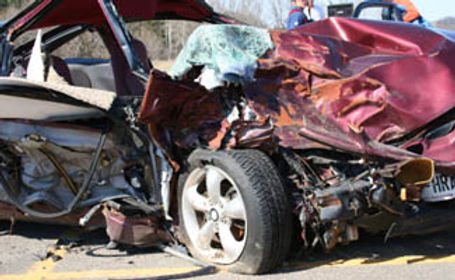Everything You Need To Know About a Diminished Value Claim

#diminshedvalueclaim #dimisnishedvalue #accident #caraccident #claim #carvalue #resalevalue
If you’ve been in an accident that wasn’t your fault, you might be eligible to file a Diminished Value claim with the responsible driver’s insurance company. Car accidents can have a significant effect on a vehicle’s resale value, and a diminished value claim is a way to recover some of the losses associated with the decreased value of your car. Depending on state laws, you may be able to take advantage of this option, so don’t miss out on the chance to receive compensation for your losses.
Insurance companies should not be limiting diminished value claims to just 10% of the car’s pre-accident appraised value. This arbitrary cap can result in thousands of dollars of value loss to the car owner. Adjustments should be made to the amount depending on the level of damage and mileage of the car before the incident. It is unfair to the car owner to be denied a fair reimbursement for the value lost due to an accident. We urge insurance companies to reconsider their policy and provide a more substantial payout for diminished value claims.
What Is the Purpose of a Diminished Value Claim?
Don’t let an accident ruin your car’s value! If you are a driver who didn’t cause an accident but whose car was damaged, you can file a diminished value claim with the at-fault driver’s insurance company to receive compensation for some of the financial setbacks that you may face as a result of the accident. Even with the repairs, your car may still significantly decrease in value – but with a diminished value claim, you can lessen the impact of that loss. Make sure you get the compensation you deserve! File a Diminished Value claim as soon as possible!
Types of Diminished Value Claims
Don’t let an accident devalue your car! You have the right to make a diminished value claim based on the fact that your car has been involved in an accident. Regardless of the extent of the damage, the record of an accident lowers the value of your car. Additionally, depending on the type of repairs and parts used, your car can lose further value due to repairs. Make a claim for immediate diminished value if you haven’t had any repairs done yet- this will take into account the loss of value from being in an accident, as well as from needing repairs. Don’t miss out on the chance to get compensation for the devaluation of your car!
Don’t let the value of your vehicle suffer due to an accident! By filing an inherent diminished value claim, you can be financially compensated for the decrease in value that occurred just from being involved in an accident, regardless of any repairs that were made. Additionally, repair-related diminished value claims help you recoup any losses due to the quality of the repairs. Original parts are worth more than aftermarket parts, so be sure to make a claim if your car was repaired with the latter.
When to File a Diminished Value Claim
If you’ve been in an accident and were not at fault, and your car had value before the incident, you should seriously consider filing a diminished value claim. The claim is made to the at-fault driver’s insurance company and asks for compensation to make up for the decrease in the value of your car. This type of claim is only available in states that recognize them, but it can be an effective way to make sure that you get the compensation you deserve. Don’t miss out on the opportunity to get the financial justice you deserve – consider filing a diminished value claim today.
When it comes to assessing the worth of a car, insurance companies take several elements into account, such as the mileage, year, make, model and any special features, as well as its pre-accident state. It is highly unlikely that an accident-damaged car, that was 20 years of age and had 300,000 miles on the clock, and had been missing a fender prior to the accident, would be eligible for a diminished value claim. In contrast, a car that was new, with only 8,000 miles, and was in like-new condition before the accident is much more likely to receive a diminished value claim.
How to File a Diminished Value Claim
Don’t let the insurance company of the at-fault driver get away with not compensating you for the decrease in your car’s value due to the accident! Make sure you know your state’s policy on filing a diminished value claim, and then gather all the evidence you need. This includes a police report, photos of the damage, repair bills or estimates, and, if necessary, a professional appraisal. Take a stand and get the financial compensation you deserve!
The cost of filing a diminished value claim can be high, but it can be worth it for drivers who would otherwise be left with a car that has lost significant value due to an accident they didn’t cause. Even if an insurance claim has paid for repairs, the safety net of a diminished value claim could be the difference between a car that is worth its pre-accident value or one that has drastically decreased in value. Don’t let yourself be taken advantage of make sure you get the compensation you deserve!







